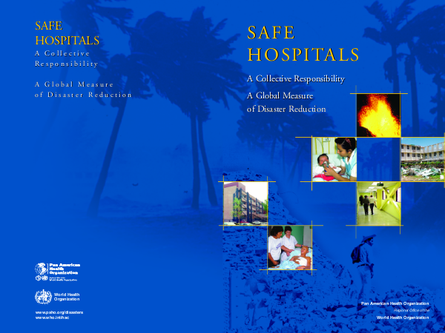
WDisasters brought about by natural hazards are, first and foremost, thought of in terms of their human consequences. The physical and emotional losses they cause have moved us to aspire for a safer world. A disaster remains primarily a social and health issue. The 1994 World Conference on Natural Disaster Reduction in Yokohama, Japan prompted a more far-sighted approach, stressing the economic link between disasters and sustainable development. It is now well recognized that disasters do affect the GNP of developing countries and reduce their prospects for growth. Disasters have become an economic issue. Has the pendulum shifted too far? Are disasters now primarily seen as economic challenges? Are the health consequences and social losses merely one of the financial line items that make up the overall cost of the damage? Disasters are setbacks to sustainable economic growth as well as human and health tragedies. These aspects are interdependent and cannot be dissociated. Protecting critical health facilities, particularly hospitals, from the avoidable consequences of disasters, is not only essential to meeting the Millennium Development Goals, but also a social and political necessity.
Resource collections
- UN Habitat - Urban Response Collection
- Urban Response - Urban Crisis Preparedness and Risk Reduction
- Urban Response Collection - Community Engagement and Social Cohesion
- Urban Response Collection - Economic Recovery
- Urban Response Collection - Environment and Climate Change
- Urban Response Collection - Housing, Land and Property
- Urban Response Collection - Urban Crisis Response, Recovery and Reconstruction
- Urban Response Collection - Urban Resilience
